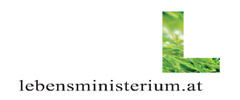WECF presents 10 steps for developing Water and Sanitation Safety Plans
A two day training for teachers and local authorities enabling communities in Timisoara county, Romania, to develop their own WSSPs
28.05.2014 |WECF

The training was carried out in cooperation with the local partner Aquademica in the frame of the project „Water and Sanitation Safety Plans for environmental education in rural schools in Macedonia and Romania“. The project is funded by the Deutsche Bundesstiftung Umwelt (DBU).
In Romania, the target communities are:
- Giulvăz with three villages Ivanda, Crai Nou u. Rudna. (3,000 inhabitants): The school Scoala Gimnaziala Giulvăz hosted the training and will be one of the involved schools.
- Liebling with the villages Conac and Cerna (3,600 inhabitants). The public school Gimnaziala Liebling will take part.
- Satchinez with the villages Bărăteaz and Hodoni (4,800 inhabitants). The schools Gimnaziala Satchinez und Gimnazială Hodoni will be involved in the project.
During the training, WSSP compendium, which has been developed by WECF and partners, was presented. The approach of the WSSP, 10 steps for developing WSSP and practical activities such as doing simple water quality tests and hand washing exercises were explained. Special attention was paid to monitoring of the water quality, reporting the results, doing risk assessment of water and sanitation facilities and conducting interviews. Throughout the training working groups were set and representants of the participating schools developed a preliminary activity plan for their schools and community which will be implemented in the coming moths. The trained participants were very enthusiastic to start as soon as possible with the children´s activities.
At the closing of the training the WSSP toolbox was handed over to representants of the four participating schools.
Contact: Claudia WendlandMargriet Samwel

































